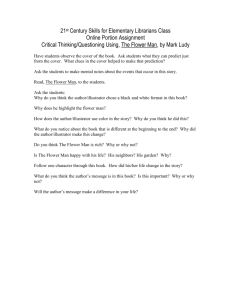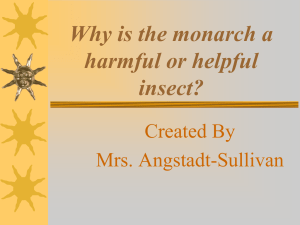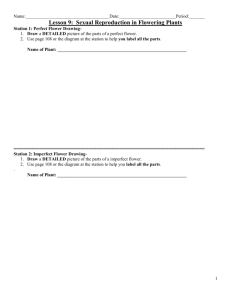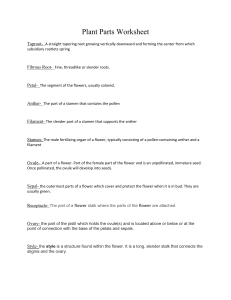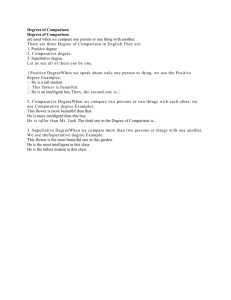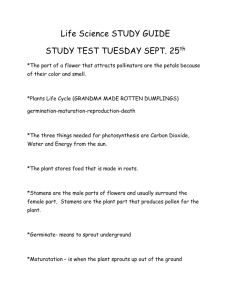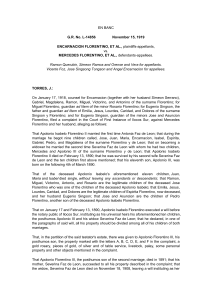Magical Realism Opening and Closing Lines
advertisement
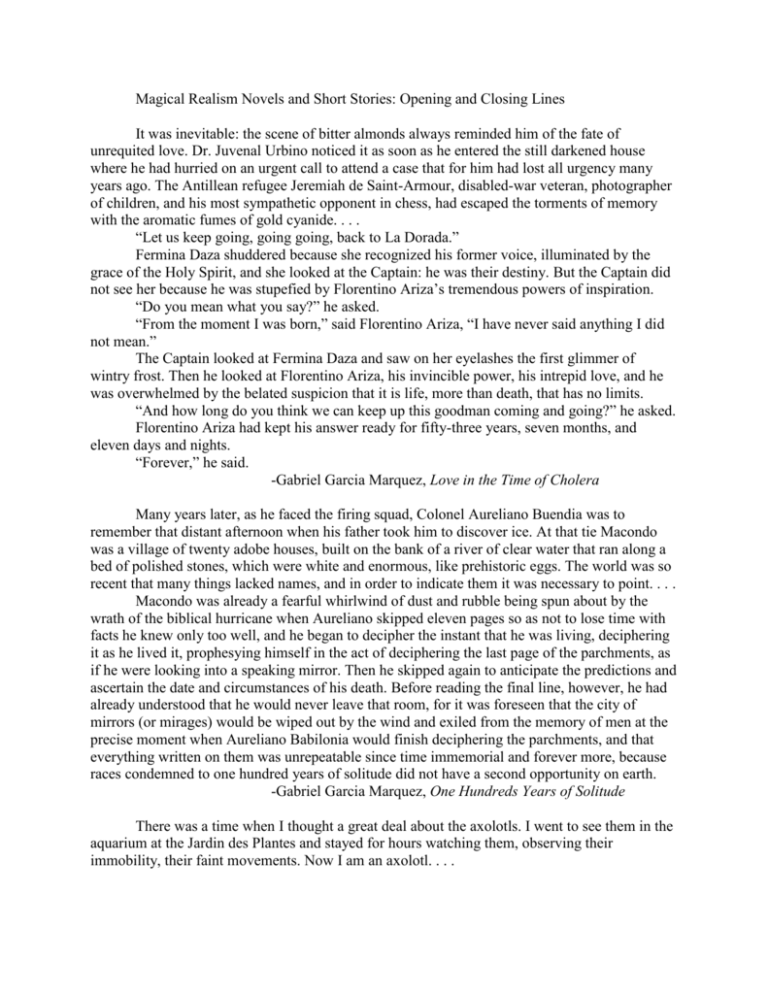
Magical Realism Novels and Short Stories: Opening and Closing Lines It was inevitable: the scene of bitter almonds always reminded him of the fate of unrequited love. Dr. Juvenal Urbino noticed it as soon as he entered the still darkened house where he had hurried on an urgent call to attend a case that for him had lost all urgency many years ago. The Antillean refugee Jeremiah de Saint-Armour, disabled-war veteran, photographer of children, and his most sympathetic opponent in chess, had escaped the torments of memory with the aromatic fumes of gold cyanide. . . . “Let us keep going, going going, back to La Dorada.” Fermina Daza shuddered because she recognized his former voice, illuminated by the grace of the Holy Spirit, and she looked at the Captain: he was their destiny. But the Captain did not see her because he was stupefied by Florentino Ariza’s tremendous powers of inspiration. “Do you mean what you say?” he asked. “From the moment I was born,” said Florentino Ariza, “I have never said anything I did not mean.” The Captain looked at Fermina Daza and saw on her eyelashes the first glimmer of wintry frost. Then he looked at Florentino Ariza, his invincible power, his intrepid love, and he was overwhelmed by the belated suspicion that it is life, more than death, that has no limits. “And how long do you think we can keep up this goodman coming and going?” he asked. Florentino Ariza had kept his answer ready for fifty-three years, seven months, and eleven days and nights. “Forever,” he said. -Gabriel Garcia Marquez, Love in the Time of Cholera Many years later, as he faced the firing squad, Colonel Aureliano Buendia was to remember that distant afternoon when his father took him to discover ice. At that tie Macondo was a village of twenty adobe houses, built on the bank of a river of clear water that ran along a bed of polished stones, which were white and enormous, like prehistoric eggs. The world was so recent that many things lacked names, and in order to indicate them it was necessary to point. . . . Macondo was already a fearful whirlwind of dust and rubble being spun about by the wrath of the biblical hurricane when Aureliano skipped eleven pages so as not to lose time with facts he knew only too well, and he began to decipher the instant that he was living, deciphering it as he lived it, prophesying himself in the act of deciphering the last page of the parchments, as if he were looking into a speaking mirror. Then he skipped again to anticipate the predictions and ascertain the date and circumstances of his death. Before reading the final line, however, he had already understood that he would never leave that room, for it was foreseen that the city of mirrors (or mirages) would be wiped out by the wind and exiled from the memory of men at the precise moment when Aureliano Babilonia would finish deciphering the parchments, and that everything written on them was unrepeatable since time immemorial and forever more, because races condemned to one hundred years of solitude did not have a second opportunity on earth. -Gabriel Garcia Marquez, One Hundreds Years of Solitude There was a time when I thought a great deal about the axolotls. I went to see them in the aquarium at the Jardin des Plantes and stayed for hours watching them, observing their immobility, their faint movements. Now I am an axolotl. . . . I am an axolotl for good now, and if I think like a man it’s only because every axolotl thinks like a man inside his rosy stone semblance. I believe that all this succeeded in communicating something to him in those first days, when I was still he. And in this final solitude to which he no longer comes, I console myself by thinking that perhaps he is going to write a story about us, that, believing he’s making up a story, he’s going to write all this about axolotls. -Julio Cortazar, “Axolotl” We are immortal. I know it sounds like a joke I know because I met the exception to the rule, I know the only mortal there is. He told me his story in a bar in the rue Cambronne, drunk enough so it didn’t bother him to tell the truth, even though the bartender (who owned the place) and the regulars at the counter were laughing so hard that the wine was coming out of their eyes. ... . . . . You know what I’m talking about, everybody feels that, what they call beauty. It was just that. The flower was beautiful, it was a very lovely flower. And I was damned, one day I was going to die and forever. The flower was handsome, there would always be flowers for men in the future. All at once I understood nothing, I mean nothingness, nothing, I’d thought it was peace, it was the end of the chain. I was going to die, Luc was already dead, there would never again be a flower for anyone like us, there would never be anything, there’d be absolutely nothing, and that’s what nothing was, that there would never again be a flower. The lit match burned my fingers. It smarted. At the next square I jumped on a bus going, it wasn’t important where, anywhere, I didn’t know, and foolishly enough I started looking around, looking at everything, everyone you could see in the street, everyone on the bus. When we came to the end of the line I got off and got onto another bus going out into the suburbs. All afternoon, until night feel, I got off and on buses, thinking of the flower and of Luc, looking among the passengers for someone who resembled Luc, someone who looked like me or Luc, someone who could be me again, someone I could look at knowing it was myself, that it was me, and then let him go on, to get off without saying anything, protecting him almost so that he would go on and live out his poor stupid life, his imbecilic, abortive life, until another imbecilic abortive life, until another imbecilic abortive life, until another . . .” I paid the bill. -Julio Cortazar, “The Yellow Flower”
